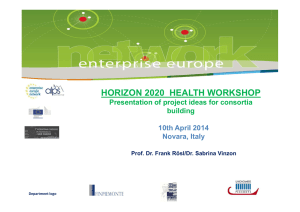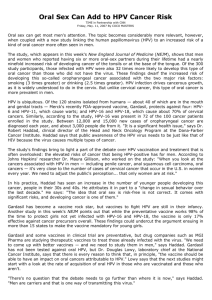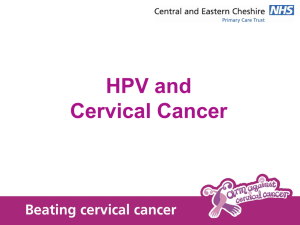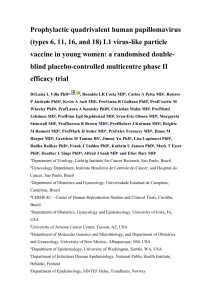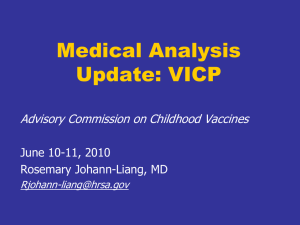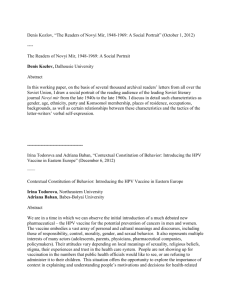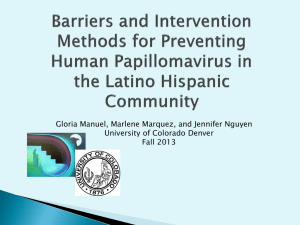HPV Vaccine Important Measure to Prevent Cervical
advertisement
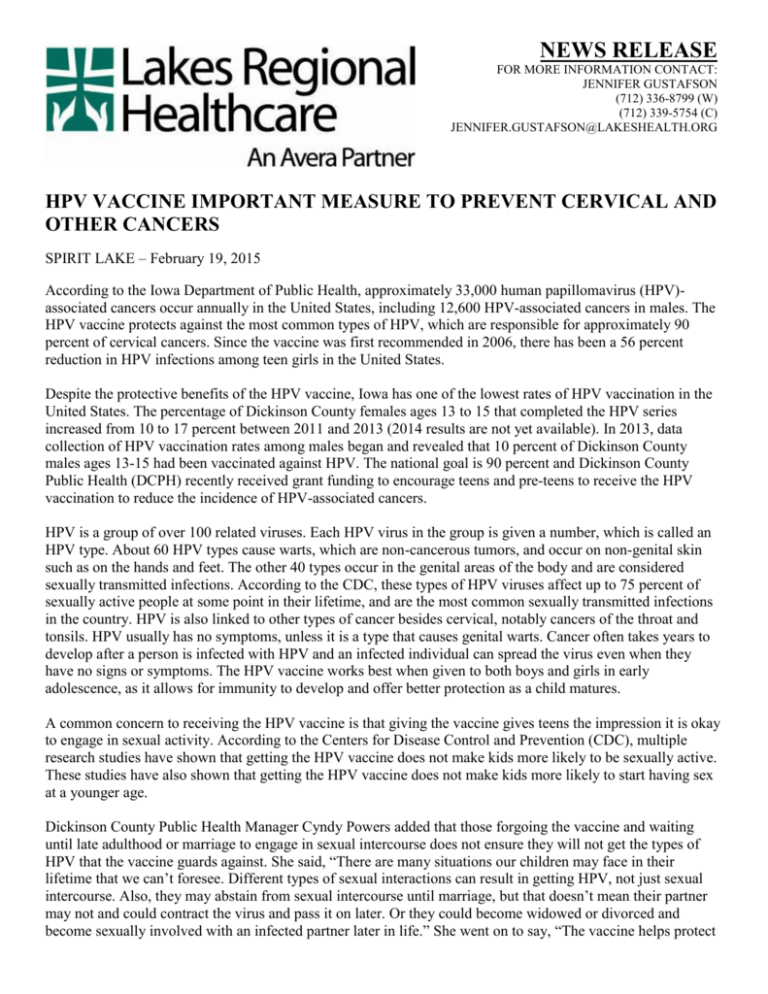
NEWS RELEASE FOR MORE INFORMATION CONTACT: JENNIFER GUSTAFSON (712) 336-8799 (W) (712) 339-5754 (C) JENNIFER.GUSTAFSON@LAKESHEALTH.ORG HPV VACCINE IMPORTANT MEASURE TO PREVENT CERVICAL AND OTHER CANCERS SPIRIT LAKE – February 19, 2015 According to the Iowa Department of Public Health, approximately 33,000 human papillomavirus (HPV)associated cancers occur annually in the United States, including 12,600 HPV-associated cancers in males. The HPV vaccine protects against the most common types of HPV, which are responsible for approximately 90 percent of cervical cancers. Since the vaccine was first recommended in 2006, there has been a 56 percent reduction in HPV infections among teen girls in the United States. Despite the protective benefits of the HPV vaccine, Iowa has one of the lowest rates of HPV vaccination in the United States. The percentage of Dickinson County females ages 13 to 15 that completed the HPV series increased from 10 to 17 percent between 2011 and 2013 (2014 results are not yet available). In 2013, data collection of HPV vaccination rates among males began and revealed that 10 percent of Dickinson County males ages 13-15 had been vaccinated against HPV. The national goal is 90 percent and Dickinson County Public Health (DCPH) recently received grant funding to encourage teens and pre-teens to receive the HPV vaccination to reduce the incidence of HPV-associated cancers. HPV is a group of over 100 related viruses. Each HPV virus in the group is given a number, which is called an HPV type. About 60 HPV types cause warts, which are non-cancerous tumors, and occur on non-genital skin such as on the hands and feet. The other 40 types occur in the genital areas of the body and are considered sexually transmitted infections. According to the CDC, these types of HPV viruses affect up to 75 percent of sexually active people at some point in their lifetime, and are the most common sexually transmitted infections in the country. HPV is also linked to other types of cancer besides cervical, notably cancers of the throat and tonsils. HPV usually has no symptoms, unless it is a type that causes genital warts. Cancer often takes years to develop after a person is infected with HPV and an infected individual can spread the virus even when they have no signs or symptoms. The HPV vaccine works best when given to both boys and girls in early adolescence, as it allows for immunity to develop and offer better protection as a child matures. A common concern to receiving the HPV vaccine is that giving the vaccine gives teens the impression it is okay to engage in sexual activity. According to the Centers for Disease Control and Prevention (CDC), multiple research studies have shown that getting the HPV vaccine does not make kids more likely to be sexually active. These studies have also shown that getting the HPV vaccine does not make kids more likely to start having sex at a younger age. Dickinson County Public Health Manager Cyndy Powers added that those forgoing the vaccine and waiting until late adulthood or marriage to engage in sexual intercourse does not ensure they will not get the types of HPV that the vaccine guards against. She said, “There are many situations our children may face in their lifetime that we can’t foresee. Different types of sexual interactions can result in getting HPV, not just sexual intercourse. Also, they may abstain from sexual intercourse until marriage, but that doesn’t mean their partner may not and could contract the virus and pass it on later. Or they could become widowed or divorced and become sexually involved with an infected partner later in life.” She went on to say, “The vaccine helps protect them regardless of the sexual situations they will be presented with in the future. And not only getting vaccinated, but getting vaccinated earlier is important for their health. There is a better immune response in preteens than in older teens and adult women. Plus, it’s important to be protected prior to exposure to HPV, long before engaging in any type of sexual activity.” The vaccine is given via an injection, administered in three doses over six months, for those ages nine to 26. Those interested in more information or in receiving the vaccine are encouraged to talk to their healthcare practitioner or call DCPH at 712-336-2682. ###

